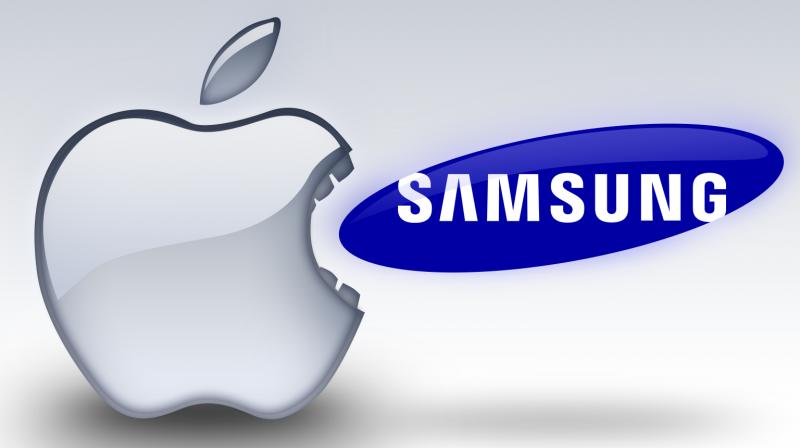Now that Apple has finally unveiled its iPhone 7 and iPhone 7 Plus for the global market, many users are keen to know how Cupertino giant’s latest offering holds up when pitted against Samsung’s stylus navigated Galaxy Note 7.
Both phablets fall in the upper end of size spectrum of this year’s top end handsets. The iPhone 7 Plus is 4mm taller and wider compared to the Note 7, but it also trims down in thickness. At 7.3 mm, it’s nearly 8 per cent slimmer than the Note 7. The iPhone 7 Plus is nearly 20 gm heavier than the Note 7 making a difference of about 11 per cent.
In terms of design, the iPhone 7 Plus seems pretty much like the previously launched iPhone 6s Plus, while the Galaxy Note 7 borrows most of its aesthetics from its cousin Galaxy S7 Edge. It has a dual-curve display, an all-glass back and a shiny finish that changes according to the angle of the light.
Both devices are water and dust resistant, the iPhone 7 Plus comes with IP67 certification, while the Galaxy Note 7 has an IP68 certification, meaning the latter will be tougher when it comes to taking a dip.
Though the iPhone 7 Plus front panel has more real estate than the one on the Note 7, but its display is actually 7 per cent smaller. Its redisgned home button that has haptic feedback – takes up more area compared to Note 7, and there’s a broader forehead on the iPhone as well.
The displays on both devices are extremely different. While the Galaxy Note 7 uses a Super AMOLED display, the iPhone 7 Plus with an LED-backlit IPS LCD display. The Galaxy Note 7 takes a hefty lead in terms of display resolution. Its 5.7-inch screen packs in 1440 x 2560 pixel resolution, while the iPhone 7 Plus sports a 5.5-inch display with 1080 x 1920 pixel resolution.
The iPhone 7 Plus retains Apple’s 3D touch feature, which allows for navigational shortcuts based on how hard and long the screen is pressed. The Note 7 does not have a pressure-sensitive display. The Note 7 comes with a highly optimised S Pen stylus that offers numerous levels of pressure sensitivity and numerous shortcuts, a notable feature missing from the iPhones.
On the performance front, both the phablets excel with their seamless user interface and smooth multitasking capabilities. Samsung used the Snapdragon 820 and the Exynos 8890 processor for different countries. Both chips offer enough horse power to back a smartphone with ease. They surely nudge ahead of Apple’s A9 chip seen on the iPhone 6s, but Apple came up with its A10 Fusion chip making its flagship device a stand out performer. Also the RAM on Galaxy Note 7 is 4GB, whereas the iPhone 7 Plus is backed by 3GB of RAM.
Both phablets have matching megapixels in their rear snappers, but Apple boosted the front camera to 7 megapixels. That makes for sharper selfies with the iPhone. The Note 7 just barely edges out the iPhone 7 Plus’s aperture size.
The iPhone 7 Plus also boasts a dual camera setup with one standard 28 mm-equivalent lens and an additional telephoto lens. The Galaxy Note 7 doesn’t have the dual camera setup, but is capable of taking some top notch images under favourable lighting conditions. The Note 7 has another biometric security measure, the iris scanner.
The iPhone’s home button has vibration-based haptic feedback similar to the Force Touch technology on its MacBook touchpads, while the Note 7’s physical home button keeps it simple.
The Galaxy Note 7 sure offers more features than the iPhone 7 Plus does, but user will have to shell out $100 more for those features. While the Apple iPhone 7 Plus is priced at $769, the Samsung Galaxy Note 7 will be selling at $850.
Both phablets look extremely powerful on brochure, but you will have to wait until the iPhone 7 Plus is out for sale. Apple already will be the favourite in this competition following Galaxy Note 7’s battery problems and exploding incidents.




 Driving Naari Programme launched in Chandigarh
Driving Naari Programme launched in Chandigarh































